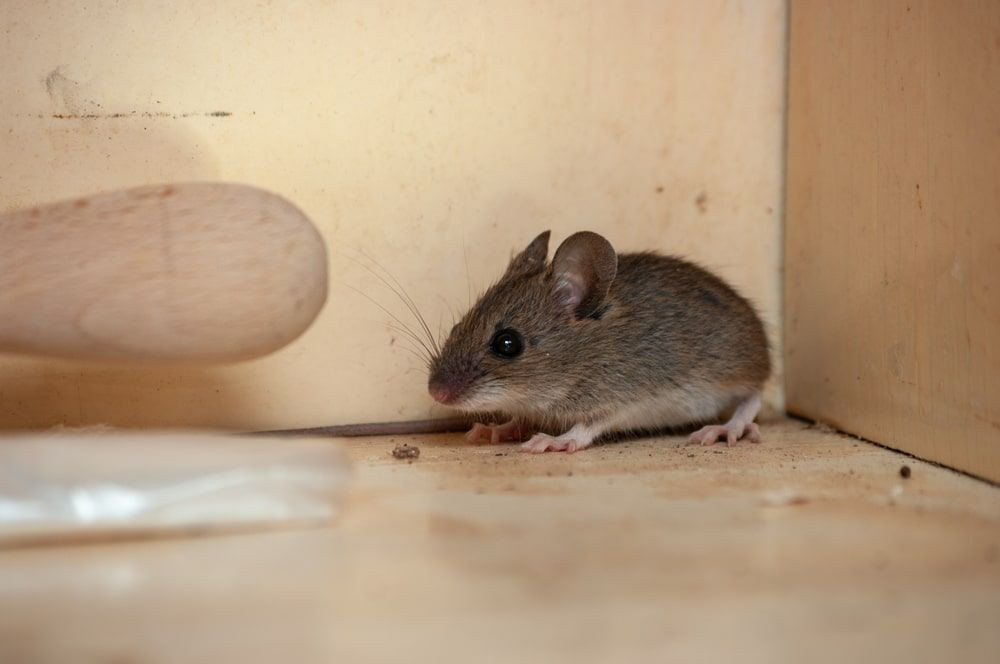While mice may seem cute to some people, they are considered a pest because of how quickly they can multiply and the large amount of damage they can cause. Females can have up to 15 litters per year, the MSD Manual Veterinary Manual – a trusted resource for veterinarians – verified. Plus, each litter could contain up to 12 baby mice, known as "pups", showcasing how quickly a mice infestation can occur. When making a nest in your home, mice can gnaw through furniture, wiring, books, and insulation. Mice can contaminate food with urine, faecal droppings and hair, and some may carry and spread diseases.
To prevent mice from entering your house in the first place and setting up a home within your home, a natural repellent could be the solution. Wanting to test out a scent that reportedly deters mice, Shawn Woods set up his own experiment and posted the outcome on YouTube. "We're going to test and see if mint actually works as a natural rodent repellent," Shawn shared. There have been many reports that "mice hate the smell of mint", said Shawn, who was sceptical at first of its use.
"The most recommended method is to get highly concentrated peppermint oil, like [an] essential oil," said Shawn. "They say if you place cotton balls around your house and refresh it on a regular basis with peppermint oil, you're less likely to have a rodent problem." For Shawn's experiment, he compared how mice reacted to a "feeding station" full of seeds when there was and wasn't peppermint oil. When there was no peppermint oil, the mice came into the feeding station and ate the food. But when there was peppermint oil, the mice wouldn't even enter the feeding station.
"After setting up this experiment and reviewing the motion camera footage, I am convinced that mice hate the smell of mint," said Shawn. "It's true, mint oil works as a natural rodent repellent; it's a great tool in keeping rodents out of your house." Shawn added: "You just need to replenish it as needed, but it definitely works."
Why Mice Hate Mint
The strong aroma of peppermint oil is overwhelming to mice. Their highly developed sense of smell makes them extremely sensitive to strong odors, and peppermint oil is particularly irritating to their noses. The scent is perceived as a threat, causing them to avoid areas where it is present.
How to Use Peppermint Oil to Repel Mice
Here are a few simple ways to use peppermint oil to keep mice away from your home:
- Cotton balls: Soak cotton balls in peppermint oil and place them in areas where mice are likely to enter, such as around doors, windows, and vents. Replace the cotton balls every few days to maintain their effectiveness.
- Spray bottle: Mix a few drops of peppermint oil with water in a spray bottle. Spray the mixture around your home, particularly in areas where mice have been seen or where there are potential entry points.
- Diffuser: Use a diffuser to disperse the scent of peppermint oil throughout your home. This is a great option for creating a long-lasting, pleasant aroma while deterring mice.
Additional Tips for Repelling Mice
In addition to peppermint oil, there are a number of other natural repellents that can help to keep mice away from your home.
- Citrus: Mice dislike the smell of citrus fruits, such as lemons and oranges. Place citrus peels around your home or use citrus-scented cleaners to deter them.
- Lavender: Lavender oil is another effective deterrent for mice. Place lavender sachets in areas where mice are likely to enter.
- Cinnamon: The strong scent of cinnamon is also unpleasant to mice. Sprinkle cinnamon powder around your home or use cinnamon-scented candles to deter them.
Preventing a Mouse Infestation
While natural repellents can be effective, it is important to take steps to prevent mice from entering your home in the first place. Here are a few tips:
- Seal entry points: Mice can squeeze through very small openings. Check your home for any cracks or gaps around windows, doors, and pipes, and seal them up with caulk or steel wool.
- Store food properly: Mice are attracted to food, so it is important to store food in airtight containers. This will prevent mice from being able to access food and make your home less appealing to them.
- Clean up spills and crumbs: Mice are attracted to crumbs and spills. Clean up any spills immediately and sweep up crumbs regularly.
By using natural repellents and taking steps to prevent mice from entering your home, you can help to keep these pests at bay and enjoy a pest-free environment.
Don't Forget: It's Not Just About the Smell
Remember, a healthy environment and a clean space are essential for deterring mice. If you have a mouse problem, it's always a good idea to consult with a professional pest control company to identify the root of the problem and develop a comprehensive plan for prevention and control.


















